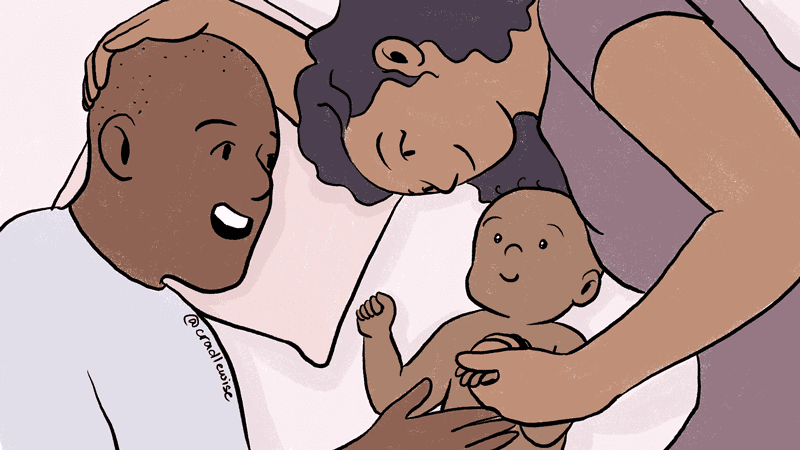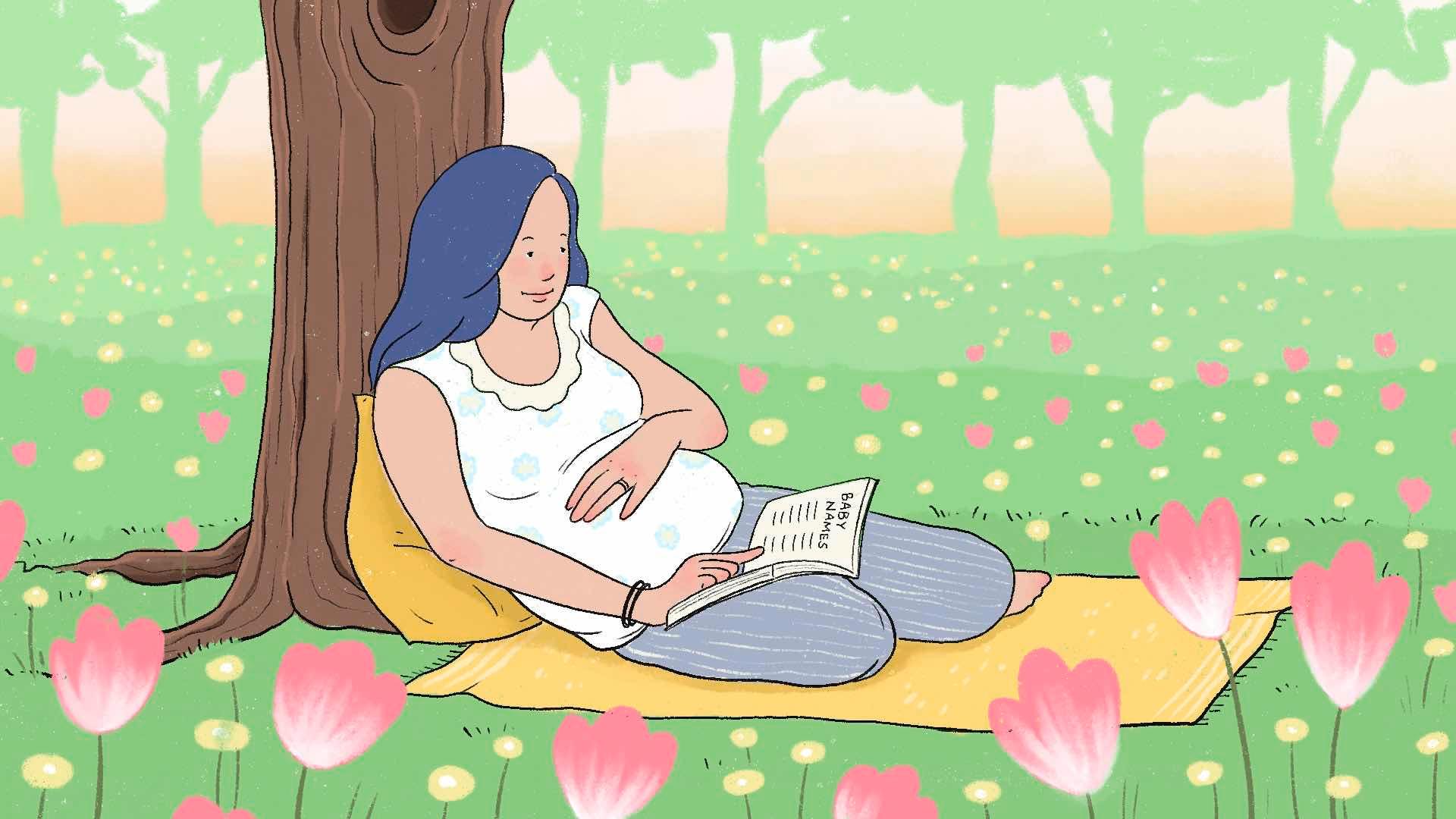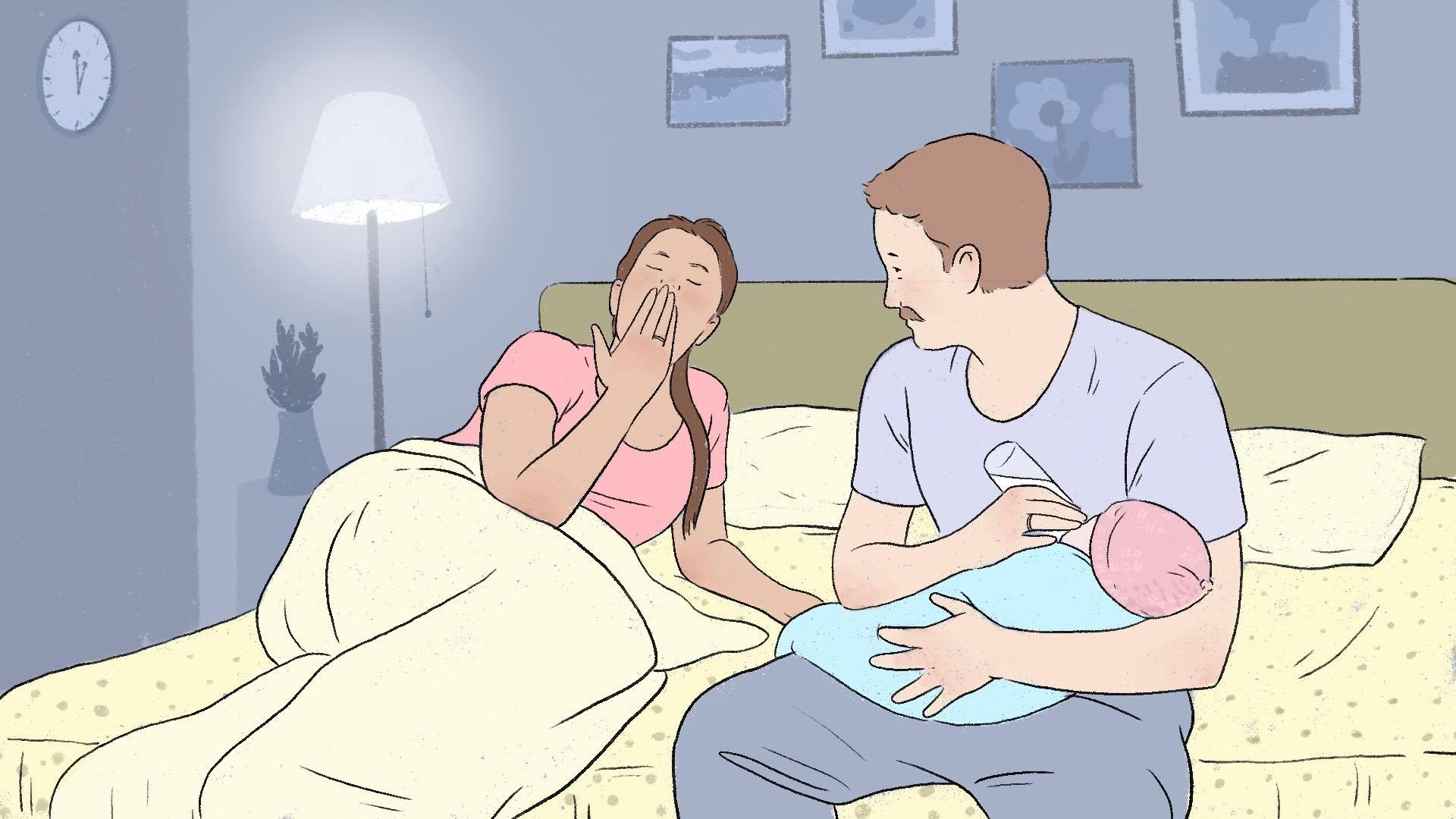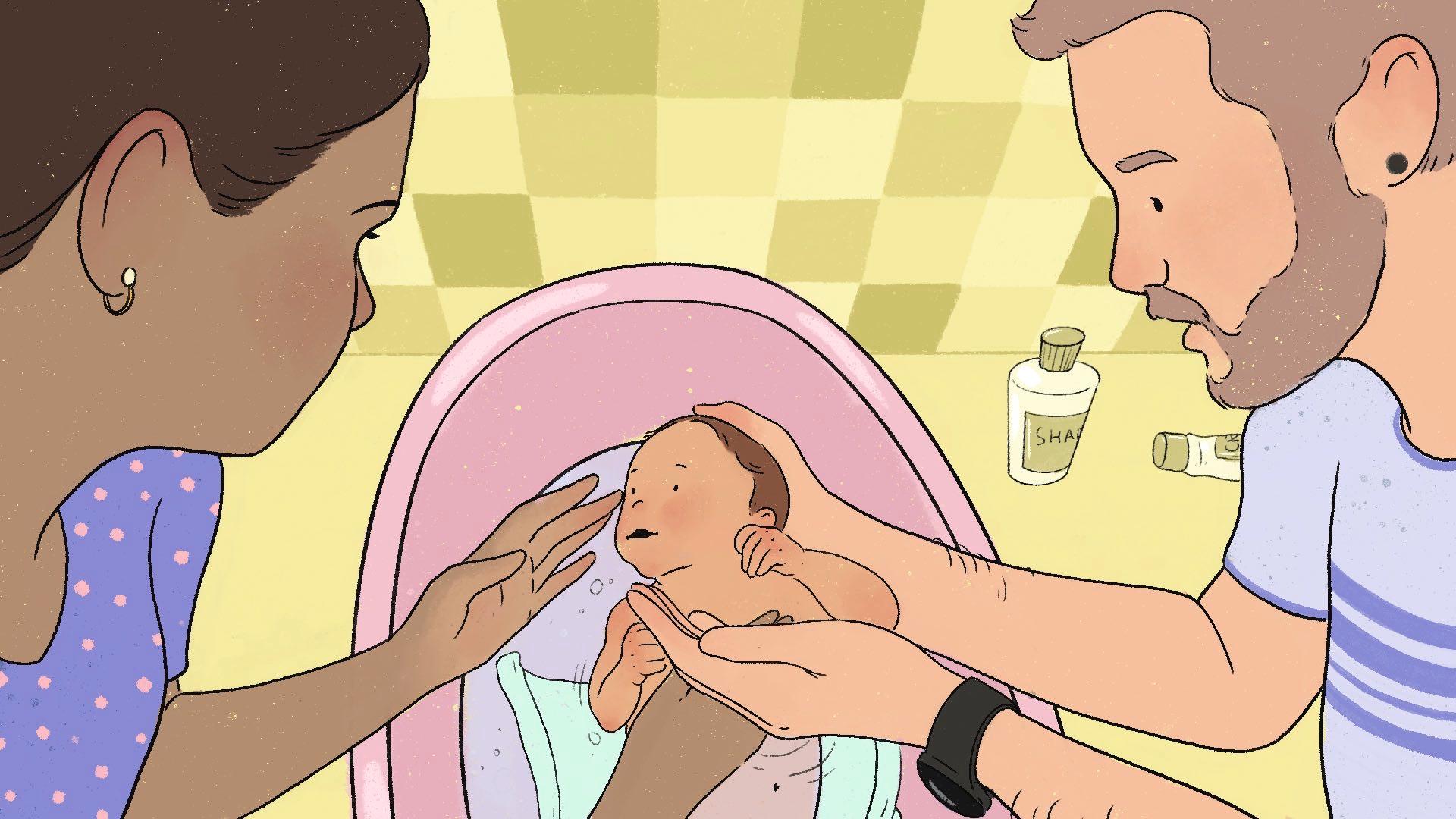Parenting
Why it’s impossible to spoil a baby with love
By Cradlewise Staff

Parenting
Why it’s impossible to spoil a baby with love
By Cradlewise Staff
As a parent, you know the drill: When your baby cries, you’re there to soothe. When they show signs of discomfort, hunger, or fussiness, you drop everything and tend to them. Love, comfort, and care are the primary job requirements for being a parent.
But it’s natural to wonder if “giving in” to your baby’s every cry or need can spoil them, or negatively impact your child’s developing sense of self. Is it possible to give a baby too much attention? Here’s what child development experts say.
Can you spoil a baby with too much attention?
The answer is a big no. You can’t spoil your baby with love by giving them too much attention and affection. Such a thing as “spoiling a baby” doesn’t exist, especially in the first six months of life. In fact, research has shown (over and over again!) that the best way to help babies and children develop and thrive is to raise them in a loving, supportive, affectionate way.
Here’s why: The infant brain is hard-wired for connection. According to Dr. Jessica Stern, Ph.D., a child development specialist and researcher on infant brain development, “Touch, play, and social interaction are vital for healthy infant development. In fact, the attention you give your baby helps build their neural architecture — especially parts of the brain important for social skills, self-control, managing emotions, and understanding others’ perspectives.”

Dr. Stern notes that the science of parenting has come a long way since the early 20th century, when child behaviorists popularized the notion that children could be spoiled or weakened by too much affection.
Since then, research has shown that babies are born with a natural need for affection and attention, and responding to their needs by loving them fosters healthy development.
So go ahead and snuggle your little one as much as you can: Showing babies lots of love, attention, and care helps nurture your child’s independence, self-confidence, and security.
How parental affection affects baby’s development
Your baby’s brain doubles in size in the first year. They’re constantly processing information, including their sense of safety and emotional attachment to their caregivers.
Attachment refers to the emotional bond that forms between a child and their caregiver, and it plays a crucial role in a child’s overall development and well-being.
According to Dr. Stern, “a baby’s unique pattern of attachment depends on the environment in which they are raised, and the ‘dance’ that occurs between infant and caregiver.”
Research has shown that the way you interact with your baby can significantly affect their attachment style. The goal is to help your baby develop what’s called a secure attachment style, which is characterized by them feeling safe and comfortable in their relationship with their caregivers.
Babies with a secure attachment style are able to explore and learn about the world around them with confidence, knowing that their caregiver is there to provide support and comfort when needed.
Securely attached babies tend to cry less, show greater autonomy and positive interactions with caregivers, and recover more easily from stress and upset.
– Dr. Stern
“ Securely attached babies tend to cry less, show greater autonomy and positive interactions with caregivers, and recover more easily from stress and upset.”
– Dr. Stern
The longer-term benefits of a secure attachment style can be even more significant. Children with a secure attachment style are more likely to develop strong social skills and relationships and have higher self-esteem, because from the very beginning, they felt valued and worthy of love and affection.
According to Dr. Stern, secure attachment has been linked to greater empathy, positive social behavior (such as helping), higher-quality relationships with teachers and peers at school, fewer behavior problems (including less aggression), and improved mental health.
That’s why it’s so important to be responsive to your baby’s needs and to show them love and affection: Parental affection helps your child develop a secure attachment style. Cuddle your baby when they’re upset, engage in interactive play, and display consistency and caring.
Being attuned to your child’s emotional state, and recognizing and responding to their cues and signals, actually helps them become more confident, curious, and secure as they grow.
Attachment patterns in infancy and early childhood
According to Dr. Stern, babies who experience consistent, responsive “serve-and-return” interactions learn that they can trust their caregivers to be available for safety and connection when needed—the key ingredient for secure attachment. Securely attached babies show confidence exploring the world, seek help when needed, and are typically easy to soothe.
On the other hand, babies who experience inconsistent care may develop a type of insecure attachment called anxious-ambivalent attachment. These babies may be anxious about exploring their environment, clinging to their caregivers and showing anger if separated, and are typically difficult to soothe.
– Dr. Stern
“ On the other hand, babies who experience inconsistent care may develop a type of insecure attachment called anxious-ambivalent attachment. These babies may be anxious about exploring their environment, clinging to their caregivers and showing anger if separated, and are typically difficult to soothe.”
– Dr. Stern
Finally, babies who experience emotionally rejecting or dismissing responses from caregivers may develop another type of insecure attachment called avoidant attachment. Avoidant infants may appear quite independent but may struggle to connect with others, often avoiding contact and connection.
Clinginess in a baby isn’t always a sign of insecure attachment, however. According to Dr. Stern, if your baby cries when they’re separated from you, or if they’re wary of someone they don’t know, this isn’t a sign of over-dependence or clinginess—rather, it’s a normal, healthy expression that your baby is attached to you. “Don’t worry—separations typically get easier for babies in the second year,” Dr. Stern says.
How do you help your baby develop a secure attachment style?
Babies are constantly learning and developing, and they rely on the love and support of their caregivers to help them navigate the world around them. You can help your baby feel safe, secure, and loved by providing a warm and loving environment, encouraging their healthy development and growth.
Here are some things that you can do to ensure your baby feels safe and secure:
- Provide consistent, responsive care: Be there for your baby when they need you, respond to their cries and needs promptly, and provide consistent routines.
- Spend quality time with your baby: Bonding with your baby is essential for building a secure attachment. Take time to play, cuddle, and talk to your baby daily.
- Use positive discipline: When your baby misbehaves, try using positive reinforcement, such as praising good behavior or offering a hug when they’re upset.
- Show affection: Physical touch is important for babies to feel loved and secure. Make sure to give your baby plenty of hugs, kisses, and cuddles to show them how much you care.
- Communicate: Talk to your baby often, using simple words and phrases, to help them learn and feel connected to you.
FAQs
Q: How often should you hold your baby?
A: It is recommended to hold your baby as often as possible, as it helps with bonding and can also provide comfort and security for your baby.
Q: Can you spoil a newborn by holding them while they sleep?
A: No, it is not possible to spoil a newborn by holding them while they sleep. In fact, holding and cuddling your newborn can actually be beneficial for their development and well-being.
FAQs
Q: How often should you hold your baby?
A: It is recommended to hold your baby as often as possible, as it helps with bonding and can also provide comfort and security for your baby.
Q: Can you spoil a newborn by holding them while they sleep?
A: No, it is not possible to spoil a newborn by holding them while they sleep. In fact, holding and cuddling your newborn can actually be beneficial for their development and well-being.
You may also like



